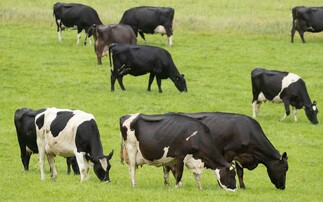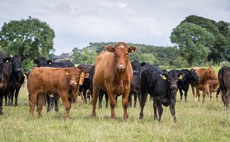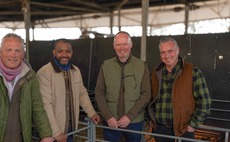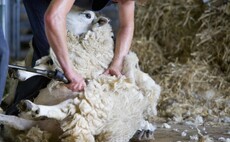
Listening to and working with farmers has to be a priority for Keir Starmer's Government if it is to succeed in delivering on shared aims to bolster food and energy security, protect the natural world and create new homes, jobs and restore public trust and confidence.
After 14 years of Conservative power, which has seen dramatic changes to the UK's food system, and many businesses still feeling the ramifications of Brexit, farmers need clear signals that the Government is on their side when it returns from recess in September.
Speaking at a �������� Guardian webinar entitled ‘What Do �������� and Rural Businesses Want from the First 100 Days of a Labour Government?' and sponsored by Carter Jonas, Ed Barker, head of policy and external affairs at the Agricultural Industries Confederation (AIC), said a period of ‘predictability and stability' among Government would not only help farmers but the businesses who are looking to invest in UK agriculture.
READ NOW: EXCLUSIVE: Keir Starmer : "We'll kickstart rural rural growth"
He said: "We have seen considerable turbulence and varying policy shifts and Defra has had numerous challenges thrown at it, some external, some entirely self-made by Ministers at the time and a considerable legacy of policy issues and decisions that were just piled up.
"Having spoken to Ministers already, there is at least a recognition and acceptance that there is a considerable amount of work that has to be worked through, on issues like gene editing, deforestation, methane inhibitors and a national action plan on pesticides."
Commitment to land use framework which ‘values land as a national asset across Whitehall' was also described as ‘pivotal' in light of Labour's pledge to build 1.5 million new homes in the next five years.
Minette Batters, former NFU president and Wiltshire tenant farmer, said: "The reason I made such a song and dance about a self-sufficiency target at the NFU - making sure that food is part of the strategic planning for the land use framework - is because the real dangers for these legislated targets are that food is left out and it simply becomes the poor relation."
Ms Batters said the Government also had an opportunity to deliver a ‘global first' in biodiversity net gain.
"I believe it should be broadened to be food, nature and biodiversity net gain, with 72 per cent of the country farmed, there is a real opportunity to see an uplift and improvement in food in nature and biodiversity," she said.
"The danger at the moment is we are seeing land bought up by housing developers and taken out of production and trees planted on our grasslands. We can deliver all of this and I would use all three - food, nature and BNG being delivered together."
As well as the tightening up of border controls to stop the UK being ‘flooded' with illegally imported meat, National Pig Association chief executive Lizzie Wilson said she would like to see the delivery of legislation governing pig contracts which ‘would provide producers with the protection that they need and more proportionately distributes the risk and reward throughout the supply chain'.
"And, as new policy proposals or legislation comes through, we would like Ministers to engage with industry to ensure that it is proportionate, it us collaborative, and it is feasible for us to deliver," Ms Wilson added.
John McCulloch, trainee auctioneer and young farmer in Dumfries and Galloway, said young people needed clarity on Government policy going forward, especially on the ‘green agenda'.
"How much land are farmers going to have to take out of production and what support are they going to get to do that? The Government has been quite vague and I would say they need to be realistic in terms of their targets. I think a lot of young people are really concerned about how they are going to run a business."
West Wales dairy farmer and Sustainable Food Trust founder Patrick Holden said previous notions of ‘intensify and expand or get out' had to be forgotten and Labour must understand the political importance of a change in farming and food and make it economically viable.
"We need to incentivise farmers to farm in a different way and put in place the conditions which make that possible. We need incentives to make a transition to climate, nature, health and culturally friendly agriculture," said Mr Holden.
"Above all, you need to involve not just the food industry, but the banks, the financiers, measure the impacts, reward farmers for delivering positive impacts on climate and nature and social and health outcomes and drive that with an investment in public education, because we need to start with children."
Mark Charter, partner and head of estate management at Carter Jonas, said in the run up to the autumn Budget, farmers and landowners were braced for changes to the underlying tax regime which ‘underpins' agriculture and investment in diversified businesses and while there would be winners and losers, there would be ‘massive opportunities'.
"What we need to see is that continuity of and consistency of policies across all areas of Government, with them then keeping to deadlines and delivering the resources when they say they are going to do.
"If they can achieve that, which is probably the holy grail in many respects, then everybody can make those long term investment decisions, knowing that risk is controlled."


























